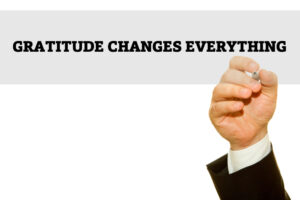The Small Cap Swing Trader Alert Archive
Below you'll find The Small Cap Swing Trader setups stacked up and ordered chronologically.December 11, 2024

Regret vs. Disappointment: How Traders Can Harness Emotions to Improve Performance
 In the high-stakes world of day trading, emotions run hot. Gains and losses happen in the blink of an eye, and the pressure to make split-second decisions is relentless. Understanding and managing emotions like regret vs. disappointment in trading can make the difference between long-term success and burnout in this fast-paced environment.
In the high-stakes world of day trading, emotions run hot. Gains and losses happen in the blink of an eye, and the pressure to make split-second decisions is relentless. Understanding and managing emotions like regret vs. disappointment in trading can make the difference between long-term success and burnout in this fast-paced environment.
While these two feelings often get lumped together, they’re fundamentally different. More importantly, one can be a tool for growth, while the other can lead to stagnation and a downward spiral.
The Difference Between Regret and Disappointment
Regret occurs when we realize we could have made a better decision. It’s a cognitive process tied to specific actions—or inactions—that didn’t lead to the desired result. The upside? Regret is actionable. It offers an opportunity to reflect, learn, and adjust your approach in the future.
Disappointment, on the other hand, is more generalized. It’s the emotional reaction to unmet expectations, often accompanied by helplessness or frustration. While it’s a natural response to failure, disappointment is less productive because it focuses on the outcome rather than the process.
Why Day Traders Need to Understand This Distinction
In trading, regret often stems from specific mistakes: selling too early, holding too long, ignoring a stop-loss, or failing to execute a plan. These are clear, actionable missteps you can analyze and correct.
Disappointment, however, often arises from outcomes beyond your control: the market moved against you despite following your strategy, or you didn’t meet your daily profit goals due to unforeseen volatility. When traders dwell on disappointment, it can lead to emotional trading, clouded judgment, and a loss of confidence.
Performance psychologist Dr. Jason Selk emphasizes the importance of separating process from outcome. He argues that focusing on controllable aspects—like preparation, execution, and discipline—helps individuals recover more effectively from setbacks.
Harnessing Regret to Improve Future Behavior
Dr. Carol Dweck, renowned for her work on mindset, highlights the value of a “growth mindset” in processing regret. Instead of fixating on the mistake itself, traders should view it as a learning opportunity. Here are some exercises inspired by performance psychology to turn regret into actionable insights:
- Conduct a Post-Mortem Review
- After each trading session, identify specific decisions that led to regret.
- Ask yourself:
- Was this a lapse in discipline?
- Did I deviate from my plan?
- What could I do differently next time?
- Write down these reflections in a trading journal. This will reinforce learning and create a roadmap for improvement.
- Reframe Regret as Feedback
- Instead of saying, “I failed,” say, “I learned.”
- For example, if you regret not setting a stop-loss, recognize that the experience has reinforced the importance of risk management.
- Visualize Future Success
- Visualization techniques are widely used by athletes and traders alike. Close your eyes and mentally rehearse how you’ll handle similar situations in the future. Imagine yourself executing your strategy flawlessly, even in challenging market conditions.

- Adopt a Daily Gratitude Practice
- Counterbalance the negative emotion of regret with gratitude. At the end of each trading day, write down three things that went well or that you’re grateful for—this trains your brain to focus on positives rather than spiraling into disappointment.
Avoiding the Emotional Spiral of Disappointment
If left unchecked, disappointment can lead to overtrading, revenge trading, or even quitting altogether. To break free from its grip:
- Set Process-Oriented Goals:
- Shift your focus from making a specific dollar amount to following your strategy consistently.
- Practice Radical Acceptance:
- Acknowledge that some outcomes are beyond your control. As Dr. Jim Loehr, co-founder of the Human Performance Institute, says, “Control what you can control, and let go of the rest.”
- Lean on a Support System:
- Trading can be isolating, but engaging with a community—whether through a mastermind group, a coach, or peers—can help you gain perspective and move past disappointments.
Conclusion
Regret and disappointment in trading are inevitable, but they don’t have to define your journey. You can transform setbacks into stepping stones by viewing regret as a teacher and learning to manage disappointment.
Adrian and Julie Manz, seasoned trading educators, emphasize that successful traders don’t avoid mistakes—they learn from them. Whether refining your strategy, improving emotional discipline, or adopting a continuous improvement mindset, the key is to stay focused on the process, not the outcome.
So, the next time regret rears its head, embrace it. Use it as a catalyst to refine your approach. And when disappointment strikes, remind yourself: the market doesn’t define you; your response does. In the end, resilience and a growth mindset will carry you further than any single trade ever could.
December 10, 2024

Why Your Why Matters
Why Your Why Matters in Trading: Unlock Success with a Clear Purpose
Trading is one of the most challenging and rewarding professions you can pursue, but success isn’t just about mastering strategies or understanding the markets. A critical yet often overlooked factor is understanding why you trade. Knowing your purpose—or your “why”—can be the difference between thriving in the markets and feeling stuck in a relentless grind. That’s why your why matters in trading, not only for staying motivated but for building the discipline and resilience required to succeed.
The Foundation of Your Trading Journey
When Julie and I first started trading, we didn’t realize how important it was to have a clear purpose. At the time, we were simply excited about the potential of the markets and the freedom trading could offer. But as the inevitable challenges came—losses, steep learning curves, and difficult market conditions—it became clear that our “why” was what kept us going.
Our trading journey began with a suitcase full of books and a dream. On one of our first trips to Paris, I brought an entire suitcase of trading resources with me. While others might have thought it strange to spend time in the City of Light studying market strategies, for me, it was an opportunity. I told Julie, “This is a chance to learn in a way I wouldn’t back home—and who knows? Maybe one day, we’ll trade from Paris.” That vision became reality. Over the past 27 years, we’ve been to Paris eight times, often staying and trading as the U.S. markets opened at 3:30 p.m. local time.
This wasn’t just about making money; it was about building a lifestyle of freedom and flexibility. That vision of what trading could allow us to do sustained us through the toughest times. It’s why your why matters in trading—it keeps you anchored and focused on the bigger picture.
Why Your Why Matters in Trading Success
Trading is not for the faint of heart. The markets can be volatile, losses are inevitable, and the pressure to perform can be overwhelming. Without a strong “why,” it’s easy to become disillusioned or give up altogether. Your “why” serves as both a motivation and a filter. It helps you stay focused on your goals and avoid the distractions that can derail your progress.
For example, if your motivation is to achieve financial independence, your trading approach will look different from someone drawn to the thrill of day trading. By understanding why your why matters in trading, you can tailor your strategies, routines, and risk tolerance to align with your goals.
Passion for Learning and Growth
A strong “why” is more than just a reason to start trading—it’s the fuel that drives your continuous improvement. For me, this passion manifests in my commitment to learning and preparation. I still use trading simulators during off-hours, replaying significant market events to refine my skills. From studying chaotic market days to anticipating future scenarios, this dedication has helped me navigate challenges with confidence.
This passion for learning is a key reason why your why matters in trading. It transforms setbacks into opportunities for growth and turns trading into a lifelong journey of mastery rather than a grind for short-term results.
Resilience in the Face of Challenges
Trading is a rollercoaster of wins and losses, and resilience is essential for long-term success. That’s where your “why” becomes invaluable. It keeps you grounded when the markets test your patience and resolve.
Julie and I have faced our share of tough market days. Losses, missed opportunities, and moments of doubt are part of the game. But instead of letting those experiences discourage us, we leaned on our “why.” Knowing that our purpose was greater than any single trade helped us push through the tough times and come out stronger.
This resilience is another reason why your why matters in trading. It reminds you that setbacks are temporary and that each challenge is an opportunity to learn and improve.
Building a Lifestyle, Not Just an Income
For many traders, the goal isn’t just to make money—it’s to build a lifestyle of freedom, flexibility, and fulfillment. Whether it’s the ability to spend more time with loved ones, travel the world, or pursue personal passions, trading can offer a path to a life that aligns with your values.
This was true for us. Trading gave Julie and me the freedom to design our lives on our own terms. From trading in Paris to hiking during market off-hours, we’ve used this career to build a lifestyle we love. And that’s why your why matters in trading—it’s the foundation for creating the life you truly want.
Conclusion
Trading is about more than just profits and losses. It’s about discovering your purpose and using that purpose to guide your journey. That’s why your why matters in trading—it keeps you focused, motivated, and resilient, even in the face of challenges.
As you start or continue your trading journey, take the time to reflect on your “why.” What motivates you? What kind of life do you want to create? When you’re clear on your purpose, you’ll not only trade with greater confidence but also enjoy the process of building a career and lifestyle that truly aligns with your values.
Let your “why” guide you, and success will follow.
Good Trading,
Adrian Manz
TraderInsight.com offers a wealth of articles focused on trader psychology, providing valuable insights into the mental aspects of trading. Here are some notable pieces:
- Trader Psychology Part One: Overcoming Three Major Psychological Hurdles
This article delves into common psychological challenges traders face, such as the fear of missing out (FOMO), loss aversion, and overconfidence, offering strategies to overcome them. - Mastering Trader Psychology 2: More Psychological Hurdles to Conquer
Building on the previous discussion, this piece addresses additional obstacles like perfectionism, impatience, and emotional detachment, providing insights into building resilience and adaptability. - Mindfulness in Trading
This article explores the role of mindfulness in trading, emphasizing the importance of staying centered and following your plan amidst market pressures. - Overcoming the Psychological Challenges Traders Face
This piece examines the psychological challenges traders encounter, focusing on overcoming fear and hesitation to achieve market success.
These articles provide comprehensive guidance on the psychological aspects of trading, helping traders develop the mental fortitude necessary for success.


